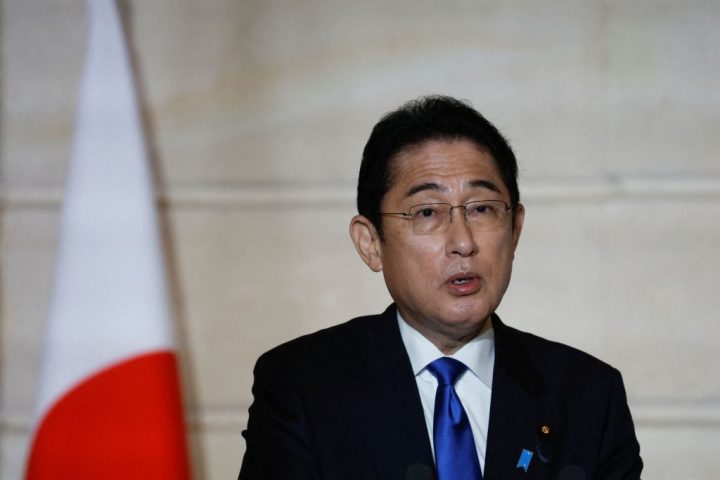Japanese prime minister Fumio Kishida is in London today to meet Rishi Sunak and sign an historic defence agreement which will allow the countries to deploy forces on each other’s soil. The two will also toast the new UK-Japan digital partnership which aims to ‘strengthen cooperation across cyber resilience, online safety and semiconductors’ and discuss trade including the UK’s accession to the CPTPP (Comprehensive Agreement for Trans-Pacific Partnership). This all sounds great, but behind the official theatre, what is the substance of the upgraded relationship?
The defence agreement is being trumpeted by the government as ‘the most significant between the two countries in more than a century.’ This references the Anglo-Japanese alliance signed in 1902 by Lord Lansdowne which ended Britain’s period of ‘splendid isolation’ (no alliances) and marked a significant step in Japan’s emergence as a serious world power. It worked reasonably well for a couple of decades and was the ‘special relationship’ that might have been had not Britain bankrupted and exhausted itself in World War I. The alliance ended in 1923: Britain jilted Japan and eloped with the USA.
These ancient historical narratives aren’t entirely irrelevant spin. The first alliance was formed in opposition to a common enemy – Russia; the prime motivator this time round is China (although Russia will still get a look in as Ukraine will also be very much on the agenda). And just as trade was a significant part of the original alliance, it’s important this time round too. The three-way deal (with Italy) to supply the next generation of F-X fighter jets was a rare piece of economic good news for the beleaguered British PM.
Japan has been a refreshingly supportive ally in the post-Brexit years
Details of what the ‘digital partnership’ will involve will probably be discussed. Japan has ambitious aims for its Digital Agency (which some find distinctly creepy) but there is some overlap with certain plans on the UK side. There may, for example, be cooperation on the technicalities of the Online Safety Bill.
The optics are good too. Japan has been a refreshingly supportive ally in the post-Brexit years. It makes sense to reconfirm that friendship and show the UK to be opening itself to the world and less reliant on its former European partners than before.
The visit, however, is more important to Kishida. The threat of an invasion of Taiwan has focused minds in Tokyo and led to a planned doubling of defence spending in the next five years, signalling a significantly more aggressive posture by the formerly constitutionally-bound pacifist nation. Japan’s vision includes counterstrike capability, with cruise missiles, to cope with potential threats from Beijing and Pyongyang. Meanwhile, the Japanese islands closest to Taiwan, Yonaguni and Ishigaki are having their defences strengthened.
All of this tells us that Japan sees a threat, particularly to Taiwan one suspects, as real and perhaps even imminent. It clearly feels a pressing need to project an image of global strength and solidarity in its face.
Kishida’s tour includes seven countries. Part of his motivation will be to lay the groundwork for May’s G7 summit, which Japan will host in Kishida’s home city of Hiroshima. Kishida will be off to the White House after London, where cynics in Tokyo say he will get his orders. It is expected that plans will be drawn up for cooperation in the event a defence of Taiwan is required, including detailed logistical planning and potentially a joint command structure.
Kishida has a domestic agenda too. At the moment, he is not cutting a particularly impressive figure at home. His approval rate plummeted in the wake of his seriously misjudged decision to hold a state funeral for the assassinated former PM Shinzo Abe at huge public expense. Another festering scandal is the ongoing revelations about links between his party (the LDP) and the Unification Church (better known as the ‘Moonies’) which emerged in the wake of Abe’s murder. His stock is low, as is the tumbling Yen. After he took over as PM in 2021 there was talk of a Kishida decade, but that hasn’t been mentioned lately.
Like many a leader under pressure, Kishida is probably hoping that strutting on the world stage will help restore some of his faded lustre, as well as sending a message to Beijing. But he has not had much luck on his travels. His attempts to kickstart his premiership and launch his vision for Japan with a major policy speech at the Mansion House on his last visit to the UK fell on the same day that Graham Brady announced that the threshold for letters of no confidence in Boris Johnson had been met, triggering a leadership election. Boris stole his thunder, even back home in Tokyo.
Kishida’s appearances at Cop26 and Cop27 were remembered only for Japan winning the ‘fossil of the year award’ (from a green activist group) for least environmentally friendly country. On Tuesday in Italy, the major papers barely reported his meeting with Giorgia Meloni; a certain Harry Windsor is unlikely to yield much headline space for his visit to Westminster. If the papers here aren’t too excited by his tour, it’s unclear how impressed the Japanese will be, let alone the Chinese or North Koreans.
Perhaps Kishida will have better luck state-side. He’ll need it.







Comments